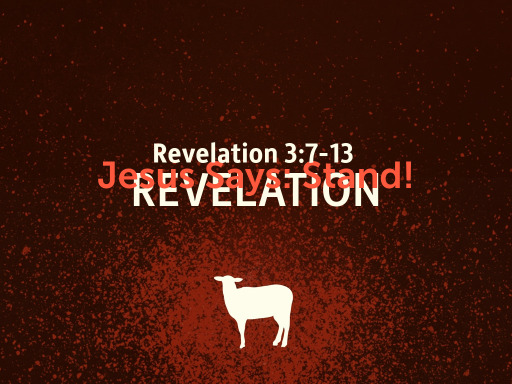Jesus Says: Stand!

Philadelphia, subject to constant earthquakes. The walls of the houses are incessantly opening, and sometimes one, sometimes another, part of the city is experiencing some damage. The majority of people (for few persons live in the city) pass their lives in the country, employing themselves in agriculture, and cultivate a good soil. Yet it is surprising that there should be even a few persons so much attached to a place where their dwellings are insecure; but one may marvel more at those who founded the city.
“Holy” and “true” are divine attributes elsewhere in Revelation (so 6:10), so their use here suggests Jesus’ deity. In fact, Isaiah uses ἅγιος (“holy”) almost exclusively of Yahweh as part of the title “the Holy One of Israel” (about 20 occurrences). This background is probably present here in anticipation of the Isa. 22:22 quotation and of the Isaiah allusions in 3:9, where Jesus assumes the role of Yahweh and his followers represent the true Israel
Some commentators have affirmed that the way in which Christ will protect believers from the coming tribulation of 3:10 is by physically “rapturing” them from earth into heaven. This is primarily argued on the basis that this view best accords with the most logical and literal force of τηρέω ἐκ (“keep from”). However, Gundry has shown the improbability of this understanding by demonstrating parallels between Rev. 3:10 and John 17:15, which is the only other NT occurrence of τηρέω with ἐκ: there Christ prays, “I ask not that you take them out of the world, but that you keep them from (τηρήσῃς αὐτοὺς ἐκ) the evil one.” Thus Jesus denies a physical removal from tribulation and affirms a spiritual protection from the devil (τηρέω [“to keep”] with ἀπό [“from”] in Prov. 7:5 and Jas. 1:27 has the same idea of protection from evil for those living in the midst of evil).
